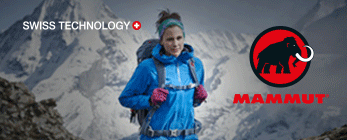Diferencia entre revisiones de «ENG:Lago Uru Uru»
| (No se muestran 30 ediciones intermedias de 2 usuarios) | |||
| Línea 1: | Línea 1: | ||
| − | {{ | + | [[ES:Lago Uru Uru]] |
| − | [[Archivo:Uru_Uru_Panoramic.jpg|thumb|1100px| | + | {{indexed}} |
| − | {{ | + | [[category:KMZconTrack]] |
| + | [[Archivo:Uru_Uru_Panoramic.jpg|thumb|1100px|center|Lago Uru Uru]] | ||
| + | {{RutaForme | ||
|Actividad=Trekking | |Actividad=Trekking | ||
|País=Bolivia | |País=Bolivia | ||
| Línea 7: | Línea 9: | ||
|BellezaEscenica=Atractiva | |BellezaEscenica=Atractiva | ||
|Atractivos=Vistas panorámicas, Flora atractiva, Fauna atractiva, Lago, Laguna, Patrimonio Cultural | |Atractivos=Vistas panorámicas, Flora atractiva, Fauna atractiva, Lago, Laguna, Patrimonio Cultural | ||
| − | | | + | |Duracion=1 día |
|RequiereHabilidadTrek=No requiere | |RequiereHabilidadTrek=No requiere | ||
|Sendero=Siempre Claro | |Sendero=Siempre Claro | ||
| Línea 13: | Línea 15: | ||
|Infraestructura=Inexistente | |Infraestructura=Inexistente | ||
|ComparteIdayRetorno=Cruce | |ComparteIdayRetorno=Cruce | ||
| − | |Distancia= | + | |Distancia=20900 |
| − | |MetrosAscenso= | + | |MetrosAscenso=25 |
| − | |MetrosDescenso= | + | |MetrosDescenso=13 |
| − | |AltitudMedia= | + | |AltitudMedia=3714 |
| − | |Comentarios distancia= | + | |Comentarios distancia=From the end of the city. Consider extra 4,7 kms from the market |
| − | |Primer Autor=Her Odyssey | + | |Imágen Principal=Uru Uru boats.jpg |
| + | |ComentariosImagen=Boats in the lake Uru Uru, october 2017 | ||
| + | |Primer Autor=[[User:Her Odyssey|Her Odyssey]] | ||
|KMLZ=Lago_Uru-Uru.kmz | |KMLZ=Lago_Uru-Uru.kmz | ||
| + | ||m=https://www.google.com/maps/d/embed?mid=1Z8jjGemik9LW0vI9OIf33Qb9bKhT2Gw&ehbc=2E312F | ||
|TipoDeMap=HYBRID | |TipoDeMap=HYBRID | ||
}} | }} | ||
| − | == | + | ==General description== |
| + | A lovely walk through the middle of Lago Uru Uru allowing views of the many birds and life which occupies the lake. Quite flat but at 4,000 m, it is a good way to acclimate to the elevation and experience the remnants of an ancient lake. | ||
| + | ==Season== | ||
| + | [[Archivo:Climograma_oruro.png|thumb|Oruro climogram]] | ||
| + | [[Archivo:Uru Uru Trash.jpg|thumb|The outskirts of the city and bank of the lake are lined with trash]] | ||
| + | [[Archivo:Uru_Uru_view_of_Oruro.jpg|thumb|View north from the route of Oruro]] | ||
| + | [[Archivo:Machacamarca_mining.jpg|thumb|small scale mining operations along the route]] | ||
| − | + | Year round, weather dependent. Said so, june to august are the driest months, and the best season to walk. Because of the altitude, Oruro is cold at night year round. | |
| − | + | ||
| − | + | ||
| − | + | ||
| − | == | + | ==Acces== |
| − | === | + | ===By car=== |
Park on either end of the route on RN 1, though your vehicle may be easier to access and less likely to be robbed if left in Machacamarca | Park on either end of the route on RN 1, though your vehicle may be easier to access and less likely to be robbed if left in Machacamarca | ||
| − | === | + | ===By public transportation=== |
| − | + | Take a taxi to the point where the railroad track meets the end of the city. Taxis in Oruro are very, very cheap. | |
| − | + | Optional: Walking out from Oruro it would be straightforward to begin from the Central Terminal station, 1 block from where you will find the railroad track which the route follows. | |
| − | + | Th route ends in the town of Machacamarca, at a roundabout where all the "minis" (public transportation white vans) depart. Returning to the city it cost less than 4 Bolivianos on one of many minis which leave frequently throughout the day back to Oruro, near the terminal where the route began. | |
| − | + | ==Route description== | |
| + | |||
| + | This route is 25 km long of lovely, easy, flat walking, passing through the heart and markets of the city of Oruro, out past the edges of town, then along the railroad burm which departs to the south of the city. The entire route follows the railroad tracks so it is easy navigation. | ||
| + | |||
| + | Leaving the city you will see the large amounts of trash which are thrown into the lake for lack of proper disposal options and awareness. This section was not lovely but interesting, in a smelly kind of way. | ||
| + | |||
| + | The route then passes a few homesteads and then out through the reeds. The level of the lake varies greatly with the season, though the locals report it never rises over the railroad tracks so this walk is a safe option if weather permits. On very low water seasons a road appears alongside the railroad track which may be an alternative if you are there at that time and a way to get closer to the birds' habitat. | ||
| − | |||
Out on the waters of the lake birdlife was abundant, a birdwatchers delight with many ducks, flamingos, hawks, etc. Fish and fishermen can be seen along the way, as can farmers, with their animals out grazing in the shallows. | Out on the waters of the lake birdlife was abundant, a birdwatchers delight with many ducks, flamingos, hawks, etc. Fish and fishermen can be seen along the way, as can farmers, with their animals out grazing in the shallows. | ||
| − | |||
| − | |||
Trains are infrequent during the day so the passage is largely yours, though it is important to remain attentive. | Trains are infrequent during the day so the passage is largely yours, though it is important to remain attentive. | ||
| − | |||
| − | |||
Approaching Machacamarca we saw a complex of small, private mining operations which were actively being worked and an intersting insight into the mining culture of the country. | Approaching Machacamarca we saw a complex of small, private mining operations which were actively being worked and an intersting insight into the mining culture of the country. | ||
| − | + | ===Expected time=== | |
| − | + | ||
| − | === | + | |
4-5 hours | 4-5 hours | ||
| − | {{ | + | {{No permits or fees}} |
| − | == | + | ==Recommendations== |
| − | + | * There is no running water along the route. | |
| + | * If you are an avid bird watcher, bring binoculars. | ||
| + | * Check the weather forecast the day previous, you will be extremely exposed through the majority of this walk without an option to get back other than by foot. | ||
| + | * Remain ever aware in case of trains. There are a few spots where it would be difficult to get out of the way without going into the water. If it is a low water time of year, there is a road which will appear alongside the tracks. | ||
| − | == | + | ==Photo gallery== |
| − | < | + | <gallery> |
| − | + | Lago_Uru_Uru.jpg|Lago Uru Uru. Image: Carmel Horowitz | |
| − | + | Uru uru dry.jpg| | |
| − | + | Uru uru birds.jpg|Birds at close distance | |
| + | Smaller mines.jpg| | ||
| + | </gallery> | ||
Revisión actual del 11:39 5 dic 2025
|
|
|
| |||||||||||||||||||||||||||||||||||||||||||||||||
General description
A lovely walk through the middle of Lago Uru Uru allowing views of the many birds and life which occupies the lake. Quite flat but at 4,000 m, it is a good way to acclimate to the elevation and experience the remnants of an ancient lake.
Season
Year round, weather dependent. Said so, june to august are the driest months, and the best season to walk. Because of the altitude, Oruro is cold at night year round.
Acces
By car
Park on either end of the route on RN 1, though your vehicle may be easier to access and less likely to be robbed if left in Machacamarca
By public transportation
Take a taxi to the point where the railroad track meets the end of the city. Taxis in Oruro are very, very cheap.
Optional: Walking out from Oruro it would be straightforward to begin from the Central Terminal station, 1 block from where you will find the railroad track which the route follows.
Th route ends in the town of Machacamarca, at a roundabout where all the "minis" (public transportation white vans) depart. Returning to the city it cost less than 4 Bolivianos on one of many minis which leave frequently throughout the day back to Oruro, near the terminal where the route began.
Route description
This route is 25 km long of lovely, easy, flat walking, passing through the heart and markets of the city of Oruro, out past the edges of town, then along the railroad burm which departs to the south of the city. The entire route follows the railroad tracks so it is easy navigation.
Leaving the city you will see the large amounts of trash which are thrown into the lake for lack of proper disposal options and awareness. This section was not lovely but interesting, in a smelly kind of way.
The route then passes a few homesteads and then out through the reeds. The level of the lake varies greatly with the season, though the locals report it never rises over the railroad tracks so this walk is a safe option if weather permits. On very low water seasons a road appears alongside the railroad track which may be an alternative if you are there at that time and a way to get closer to the birds' habitat.
Out on the waters of the lake birdlife was abundant, a birdwatchers delight with many ducks, flamingos, hawks, etc. Fish and fishermen can be seen along the way, as can farmers, with their animals out grazing in the shallows.
Trains are infrequent during the day so the passage is largely yours, though it is important to remain attentive.
Approaching Machacamarca we saw a complex of small, private mining operations which were actively being worked and an intersting insight into the mining culture of the country.
Expected time
4-5 hours
Permits / Fees
 |
This route is free and does not require any permit |
|---|
Recommendations
- There is no running water along the route.
- If you are an avid bird watcher, bring binoculars.
- Check the weather forecast the day previous, you will be extremely exposed through the majority of this walk without an option to get back other than by foot.
- Remain ever aware in case of trains. There are a few spots where it would be difficult to get out of the way without going into the water. If it is a low water time of year, there is a road which will appear alongside the tracks.
















